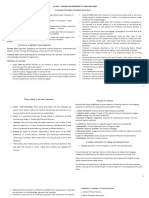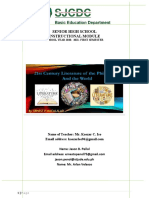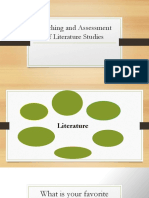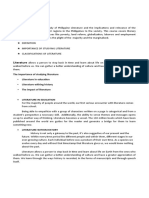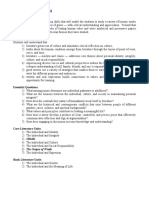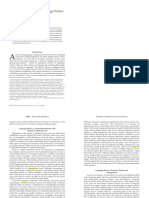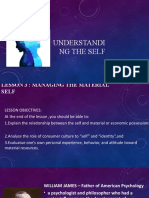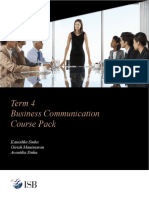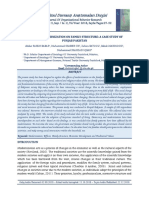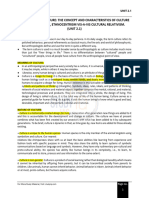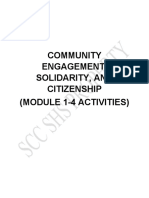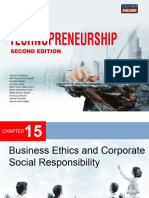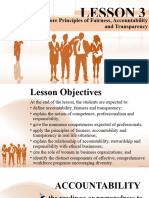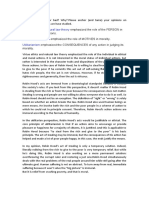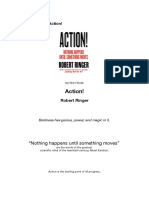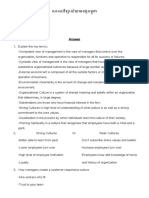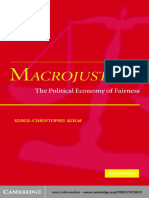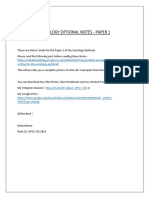0% found this document useful (0 votes)
28 views2 pagesSignificant Human Experience
Literature is defined as any artistic writing that addresses significant human experiences, helping individuals discover more about themselves and the meaning of life. It reflects universal themes such as parent-child relationships, death, loneliness, conformity, growing up, and materialism, making it relatable and impactful. Additionally, literature serves educational purposes by improving language skills, teaching about life and culture, and encouraging critical thinking.
Uploaded by
Windyl VillanuevaCopyright
© © All Rights Reserved
We take content rights seriously. If you suspect this is your content, claim it here.
Available Formats
Download as DOCX, PDF, TXT or read online on Scribd
0% found this document useful (0 votes)
28 views2 pagesSignificant Human Experience
Literature is defined as any artistic writing that addresses significant human experiences, helping individuals discover more about themselves and the meaning of life. It reflects universal themes such as parent-child relationships, death, loneliness, conformity, growing up, and materialism, making it relatable and impactful. Additionally, literature serves educational purposes by improving language skills, teaching about life and culture, and encouraging critical thinking.
Uploaded by
Windyl VillanuevaCopyright
© © All Rights Reserved
We take content rights seriously. If you suspect this is your content, claim it here.
Available Formats
Download as DOCX, PDF, TXT or read online on Scribd
/ 2







